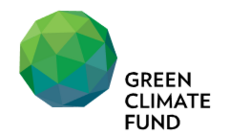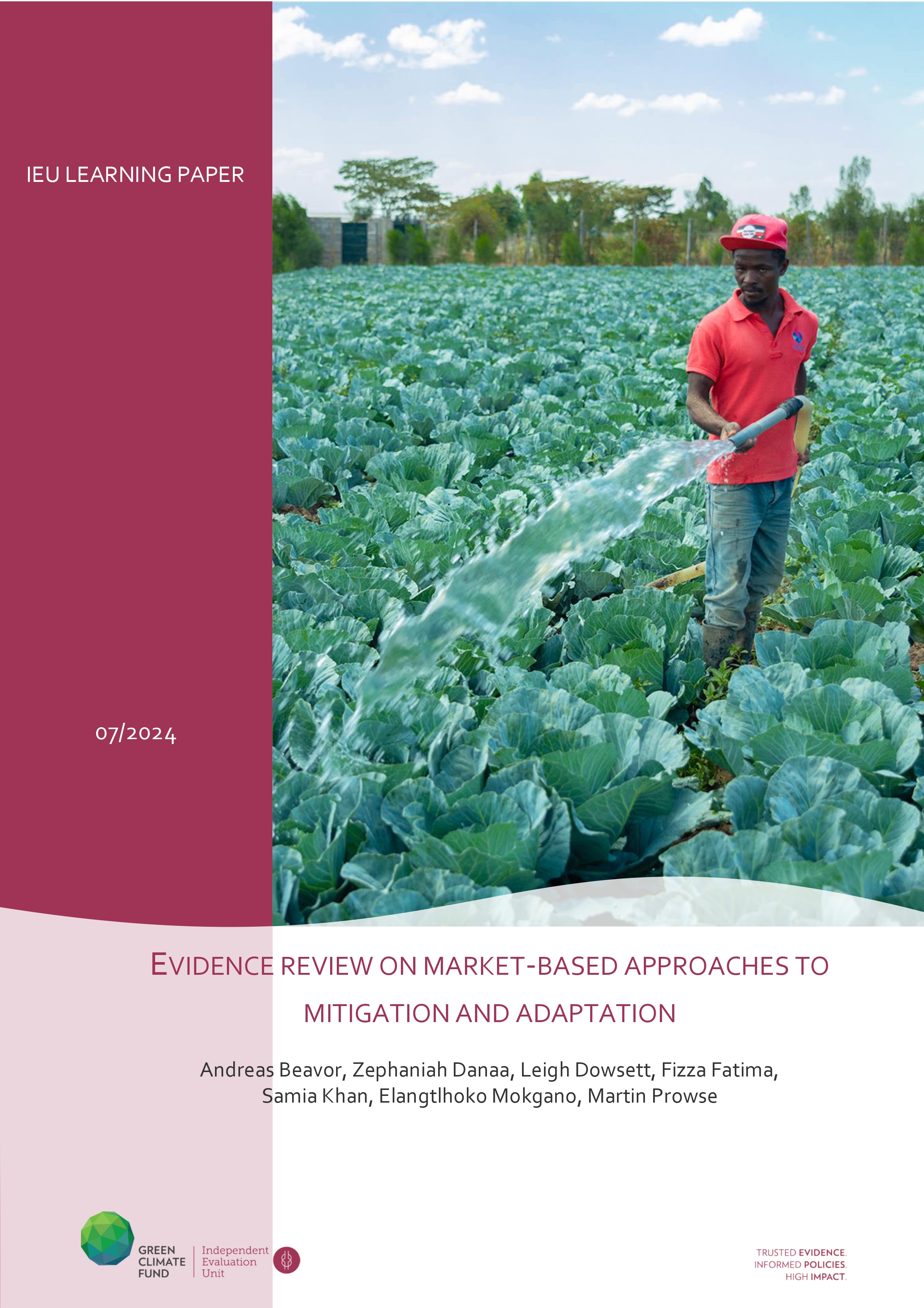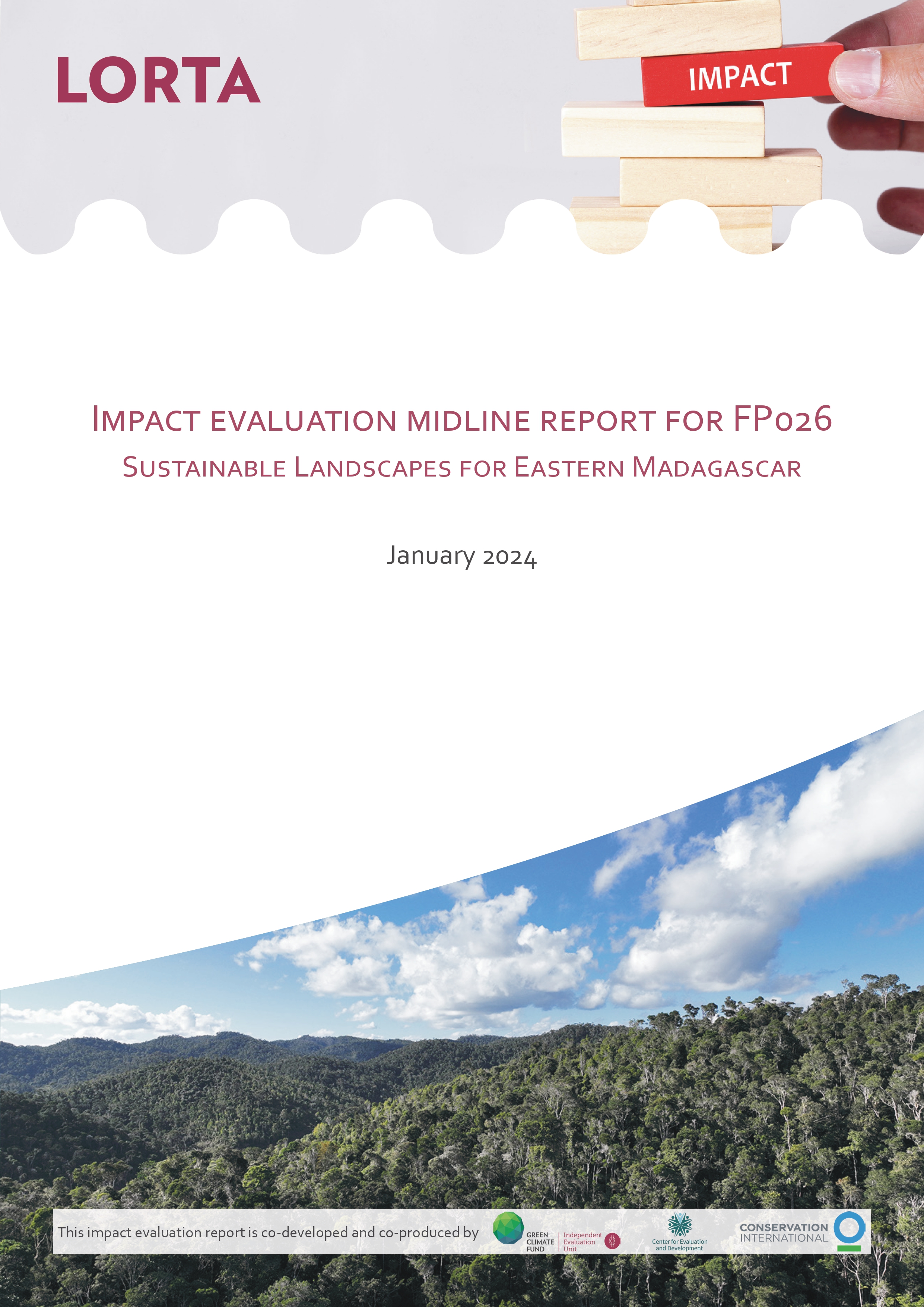Institution Background
The Independent Evaluation Unit (IEU) ensures GCF is accountable and effective. It conducts independent evaluations of GCF's activities to guarantee its accountability and synthesises learnings from high quality and rigorous evaluations to support GCF's effectiveness and efficiency. It operates independently of the GCF Secretariat. Its Head is appointed by and reports directly to the GCF Board.
Evaluation Function
Evaluations
The IEU undertakes independent overall, portfolio, country, thematic, programme evaluations that inform GCF strategic result areas. In key cases, it also supports and undertakes project evaluations. The IEU uses relevant and innovative methods and an independent peer-review mechanism that provides guidance on independent evaluations. The vision, criteria and guidelines for these are laid out in the independent evaluation policy. The IEU is also mandated to independently peer-review and attest the quality of GCF self-evaluations.
Impact Evaluations: IEU’s Learning-Oriented Real-Time Impact Assessment (LORTA) programme uses best practices in theory-based impact evaluations to build feedback loops and measurement into GCF projects and programmes. The LORTA team employs a rigorous approach to determine the causal effects of interventions on particular outcomes, assisting project teams in understanding what works, identifying effective interventions, and deciding what to scale up. This programme aims to contribute to building high-quality evidence in the climate adaptation and mitigation space.
Evidence Reviews: IEU’s evidence reviews assemble global evidence on topics that are relevant to the GCF. They are based on a structured literature search guided by a protocol. They appraise the quality of evidence and illustrate the evidence base in an easy-to-understand manner. The IEU produces two types of evidence reviews:
- Evidence gap maps (EGMs) depict high-quality evidence – or the lack thereof – in a thematic area. They usually use a theory of change and illustrate the landscape of evidence in a framework with interventions in rows and outcomes in columns.
- Systematic reviews assess and synthesize high-quality evidence on a specific intervention. They can contain meta-analysis which aggregates findings across studies.
Newsroom
The IEU produces a wide range of communications products tailored to the needs of its broad spectrum of stakeholders. Such products include print and online publications, newsletters, multimedia content, and promotional materials for internal and external engagement. The IEU updates its microsite daily and maintains a solid presence on social media. These outreach activities and materials disseminate the IEU’s evaluations, support their uptake, and serve the IEU’s broader learning and advisory function.
Publications & Documents
To serve the needs of IEU’s stakeholders, the Unit issues a variety of publications related to its work, including in the context of evaluations and learning.
Advice & Data
DataLab: The IEU DataLab has the following objectives:
- Lead data-related work in rigorous, evidence-based evaluations;
- Gather, manage, analyze, and share portfolio data;
- Utilizing geospatial techniques and developing spatially aware approaches in evaluations;
- Carry out cutting-edge research in the field of climate change evaluation; and
- Support impact evaluation data generated through the IEU's Learning-Oriented Real-Time Impact Assessment (LORTA) program.
Learning Papers: The IEU engages with and contributes to debates on climate evaluation, low-emission pathways and climate-resilient development. The IEU Learning Paper Series encourages discussion on these topics and distributes findings from the Unit’s work. The authors are IEU staff, consultants or are from partner organizations.



